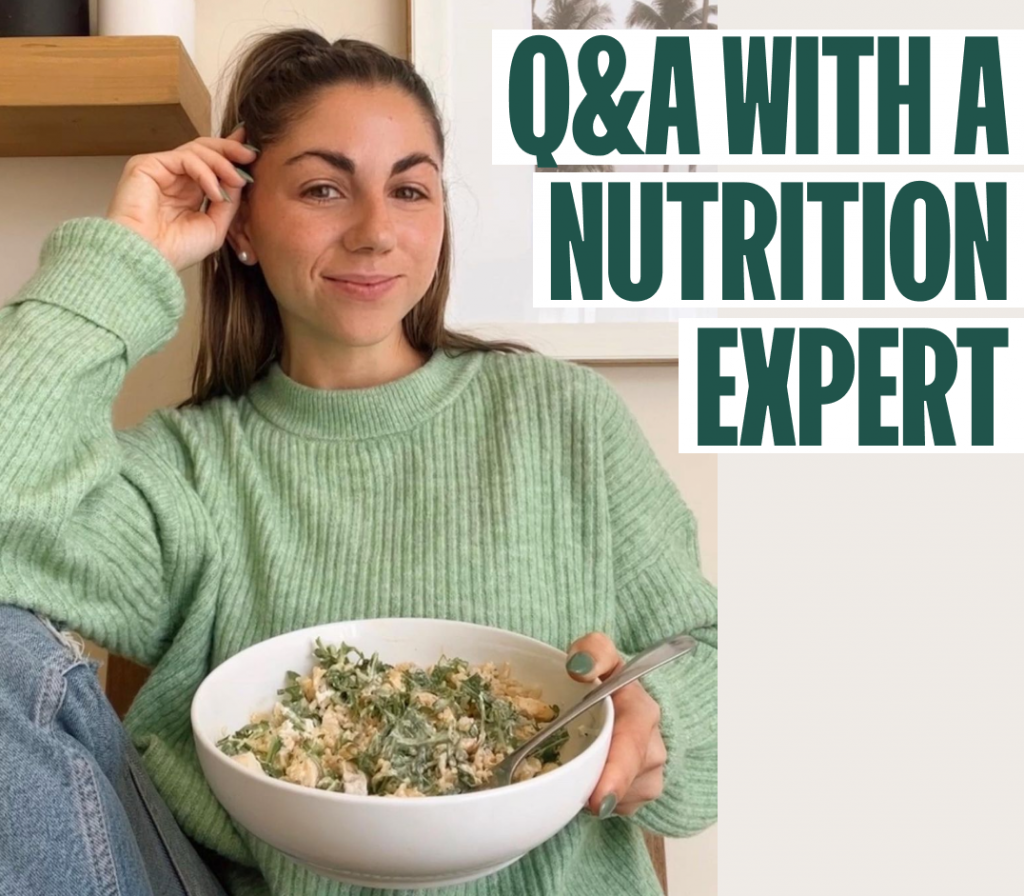March marks the start of spring, the tip-off of March Madness, and the overlap of Women’s History and National Nutrition months.
Naturally, we thought it would make sense to turn the mic over to Supergut’s very own Erika Fox—our social media manager, a registered dietitian, and the starting center of her college basketball team. (JK about that last part… she’s 5’ 2’’).
Read on to glean her insights on gut health, grocery carts, and good old-fashioned morning routines.
Q&A with a Nutrition Expert

So, gut health. As important as they say it is?
Yes, 1000%. Your gut is the command center for whole-body health. It’s actually wild how much of our body is influenced by it—from digestion (obviously) to appetite, weight, energy, immunity, sleep, mental health… the list goes on.
Put very simply, your gut is home to trillions of living organisms. When these organisms are well-fed, they’re happy. When they’re happy, they unleash shock waves of health benefits throughout your body. Eating more prebiotic fiber is one of the most proven ways to nourish your gut biome.
What’s your daily gut health routine look like?
Not just saying this, I begin every day with Supergut Fiber Mix in my coffee. It’s the easiest way to start chipping away at my daily fiber goal of 30g.
A few other healthy habits I commit to: getting sunlight in the morning, daily movement (usually a long walk), and prioritizing sleep.
What is your #1 health tip?
Eat at least 30 different plant-foods per week. Diversity is key, as there are trillions of microbes in your gut that crave different nutrients and fibers.
That and to move your body every day (especially after eating). This can be walking, stretching, strength training, running, whatever feels good to you.
High-fiber foods always in your grocery cart?
- Broccoli: One of my favorite greens – I could eat it with every meal
- Avocado: Healthy fat, 10g of fiber, creamy texture… avocados are amazing
- Berries: I usually opt for yogurt (ferments!) with colorful berries (phenols!)
- Chickpeas: Great in stir fry, salad bowls, or even mixed into sauces or soups
Pre or probiotics?
One big misconception is that a probiotic is going to fix all gut health problems. Probiotics can be beneficial, but there are so many other factors when it comes to gut health. The most important is eating more prebiotics—the fibrous fuel for gut microbes—in addition to a balanced diet, spending time outdoors, and getting proper sleep.
Favorite health influencer:
Arielle Lorre. She interviews a lot of great health professionals on her podcast—from doctors and dietitians to trainers and therapists.

One piece of nutrition advice you’d tell your 20-year-old self:
I’d probably say that perfection doesn’t exist. Aim for balance and enjoy yourself!
Want to receive more expert nutrition advice directly to your inbox? Then sign up for The Gut Check newsletter today—a bi-monthly breakdown of all things Supergut, brought to you by our team of scientists, doctors, and nutrition experts.






